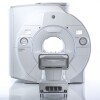A look at a law that changed everything
October 01, 2008

Healthcare Chronicles
by Ken Poteete
Note: This story originally appeared in the October 2008 edition of DOTmed Business News.
Being involved in healthcare for more than four decades has some advantages. For one, I didn't need to adjust to a new career every five or six years like the younger generation of workers seems prone to do. More than that though, I have had the pleasure of seeing where healthcare was, where it is and hopefully, where it's headed.
I began my career as an army medical service corp. officer during the Vietnam era. When I completed my service commitment, I attended graduate school in hospital management and have been enjoying that career ever since. This dates back to the mid 1960s, which was a time of major changes in the industry.
It was during that time that Lyndon Johnson signed the Medicare Bill into law. The bill finally realized the hopes of a number of Presidents before; notably, Franklin Roosevelt, John F. Kennedy and Harry Truman. It was Truman in particular who had said after his presidency that his failure to institute national health insurance was his biggest regret. That's why Johnson travelled to the Truman library in Independence, Missouri on July 30, 1965, to sign Medicare into law. He also presented the first two Medicare cards to President Truman and his wife, Elizabeth. Medicare was one big piece of Johnson's "Great Society" effort.
With that law introduced, everything changed for the health care industry. Like many Americans reaching adulthood in the '60s, I had seen firsthand the difficulties US citizens over 65 encountered when it came to healthcare. So many weren't able to afford health insurance and if they didn't have insurance, they didn't go to the doctor. My own grandparents had this problem and it was upsetting to see people who had worked hard all their lives not being able to get the care they needed when they decided to retire. Needless to say, Medicare was a welcome addition.
With more Americans able to afford and seek health care, hospitals benefited as well. I worked with Georgetown Hospital in Texas and shortly after Medicare was created the hospital began to expand. I was given the opportunity to become the administrator at Georgetown and I've now spent more than 36 years helping to grow and expand the healthcare system.
Training programs for hospital administrators and other healthcare personnel expanded across the country. More people were seeking care and had the ability to pay for it. The field became an excellent career choice. We've been working with Medicare for more than 40 years now and the healthcare industry is one of the top industries we have. It's also one in which America is truly a standout. I feel Johnson truly made a step forward with his idea of a "Great Society." But, we do continue to have plenty to work on as a country in regards to healthcare. We have more than 40 million people uninsured or underinsured. We are spending over 15% of our GDP on healthcare and it is growing. I hope in the not too distant future we resolve many of these major issues regarding healthcare problems to the benefit of everyone.
Ken Poteete retired in 2007 from St. David's Georgetown Hospital. He is currently CEO of Georgetown Healthcare System/Foundation. Mr. Poteete serves on the Board of Directors for the Texas Hospital Insurance Exchange and as a Trustee for the THA Retirement Plan for Member Hospitals.
Note: This story originally appeared in the October 2008 edition of DOTmed Business News.
Being involved in healthcare for more than four decades has some advantages. For one, I didn't need to adjust to a new career every five or six years like the younger generation of workers seems prone to do. More than that though, I have had the pleasure of seeing where healthcare was, where it is and hopefully, where it's headed.
I began my career as an army medical service corp. officer during the Vietnam era. When I completed my service commitment, I attended graduate school in hospital management and have been enjoying that career ever since. This dates back to the mid 1960s, which was a time of major changes in the industry.
It was during that time that Lyndon Johnson signed the Medicare Bill into law. The bill finally realized the hopes of a number of Presidents before; notably, Franklin Roosevelt, John F. Kennedy and Harry Truman. It was Truman in particular who had said after his presidency that his failure to institute national health insurance was his biggest regret. That's why Johnson travelled to the Truman library in Independence, Missouri on July 30, 1965, to sign Medicare into law. He also presented the first two Medicare cards to President Truman and his wife, Elizabeth. Medicare was one big piece of Johnson's "Great Society" effort.
With that law introduced, everything changed for the health care industry. Like many Americans reaching adulthood in the '60s, I had seen firsthand the difficulties US citizens over 65 encountered when it came to healthcare. So many weren't able to afford health insurance and if they didn't have insurance, they didn't go to the doctor. My own grandparents had this problem and it was upsetting to see people who had worked hard all their lives not being able to get the care they needed when they decided to retire. Needless to say, Medicare was a welcome addition.
With more Americans able to afford and seek health care, hospitals benefited as well. I worked with Georgetown Hospital in Texas and shortly after Medicare was created the hospital began to expand. I was given the opportunity to become the administrator at Georgetown and I've now spent more than 36 years helping to grow and expand the healthcare system.
Training programs for hospital administrators and other healthcare personnel expanded across the country. More people were seeking care and had the ability to pay for it. The field became an excellent career choice. We've been working with Medicare for more than 40 years now and the healthcare industry is one of the top industries we have. It's also one in which America is truly a standout. I feel Johnson truly made a step forward with his idea of a "Great Society." But, we do continue to have plenty to work on as a country in regards to healthcare. We have more than 40 million people uninsured or underinsured. We are spending over 15% of our GDP on healthcare and it is growing. I hope in the not too distant future we resolve many of these major issues regarding healthcare problems to the benefit of everyone.
Ken Poteete retired in 2007 from St. David's Georgetown Hospital. He is currently CEO of Georgetown Healthcare System/Foundation. Mr. Poteete serves on the Board of Directors for the Texas Hospital Insurance Exchange and as a Trustee for the THA Retirement Plan for Member Hospitals.














